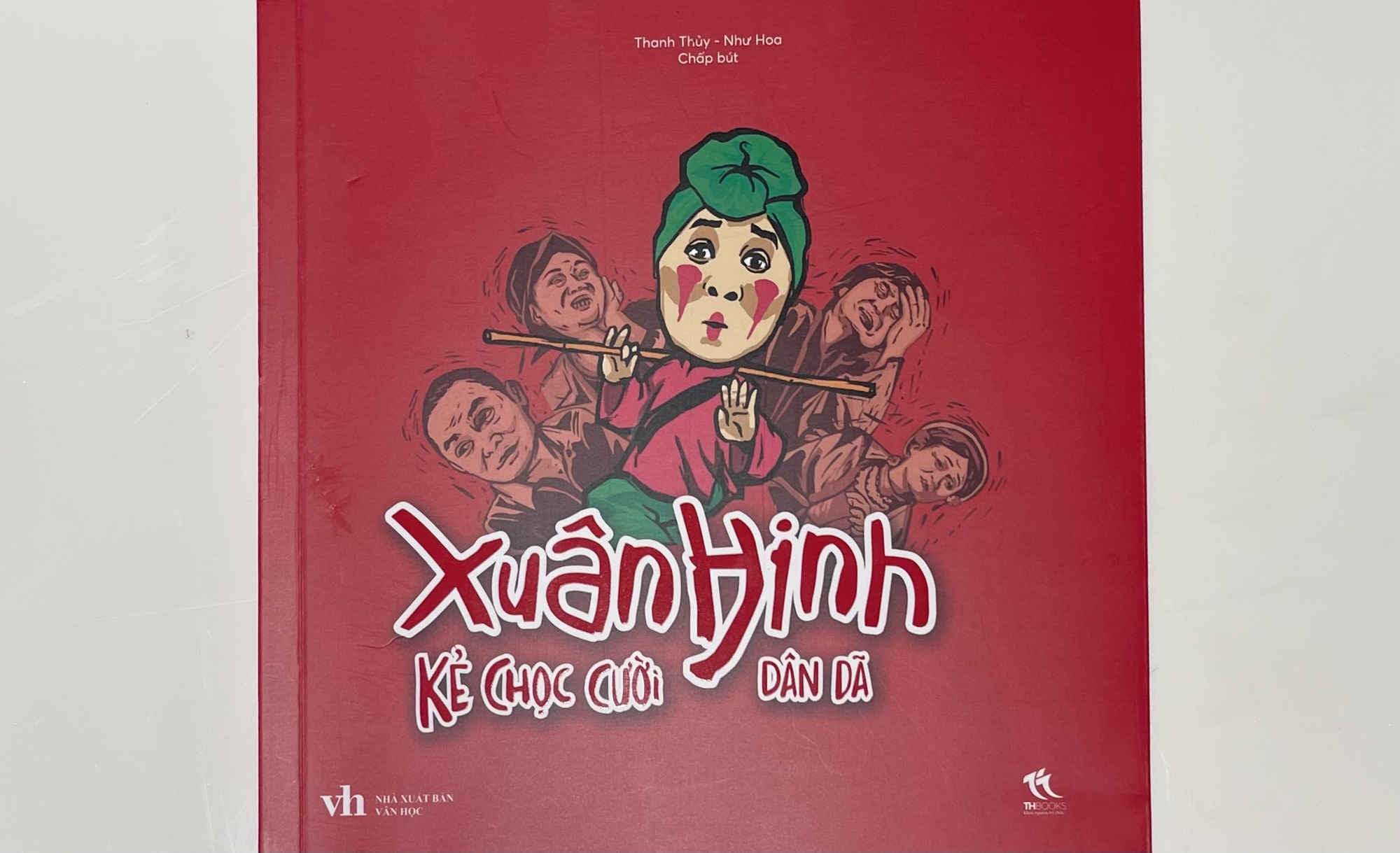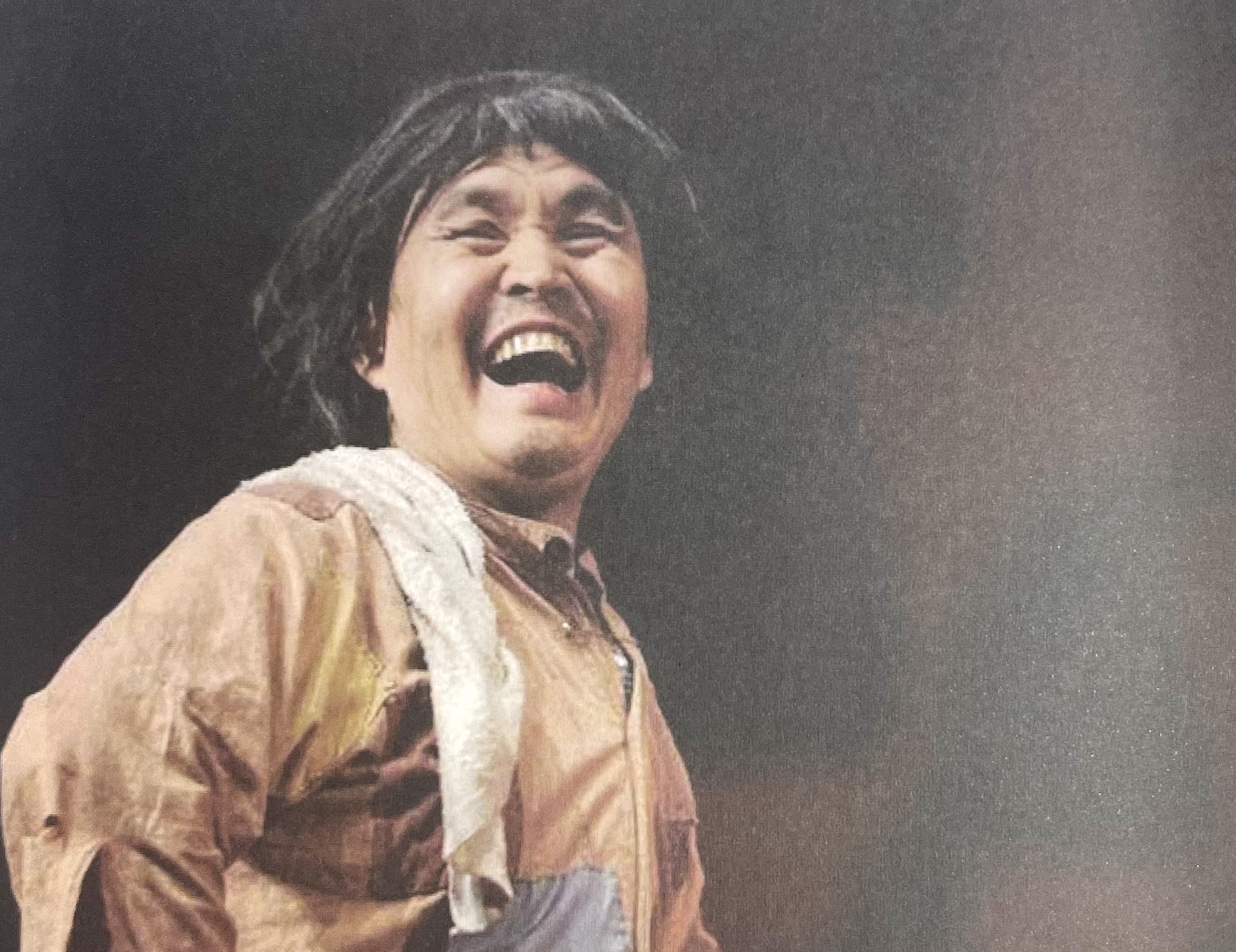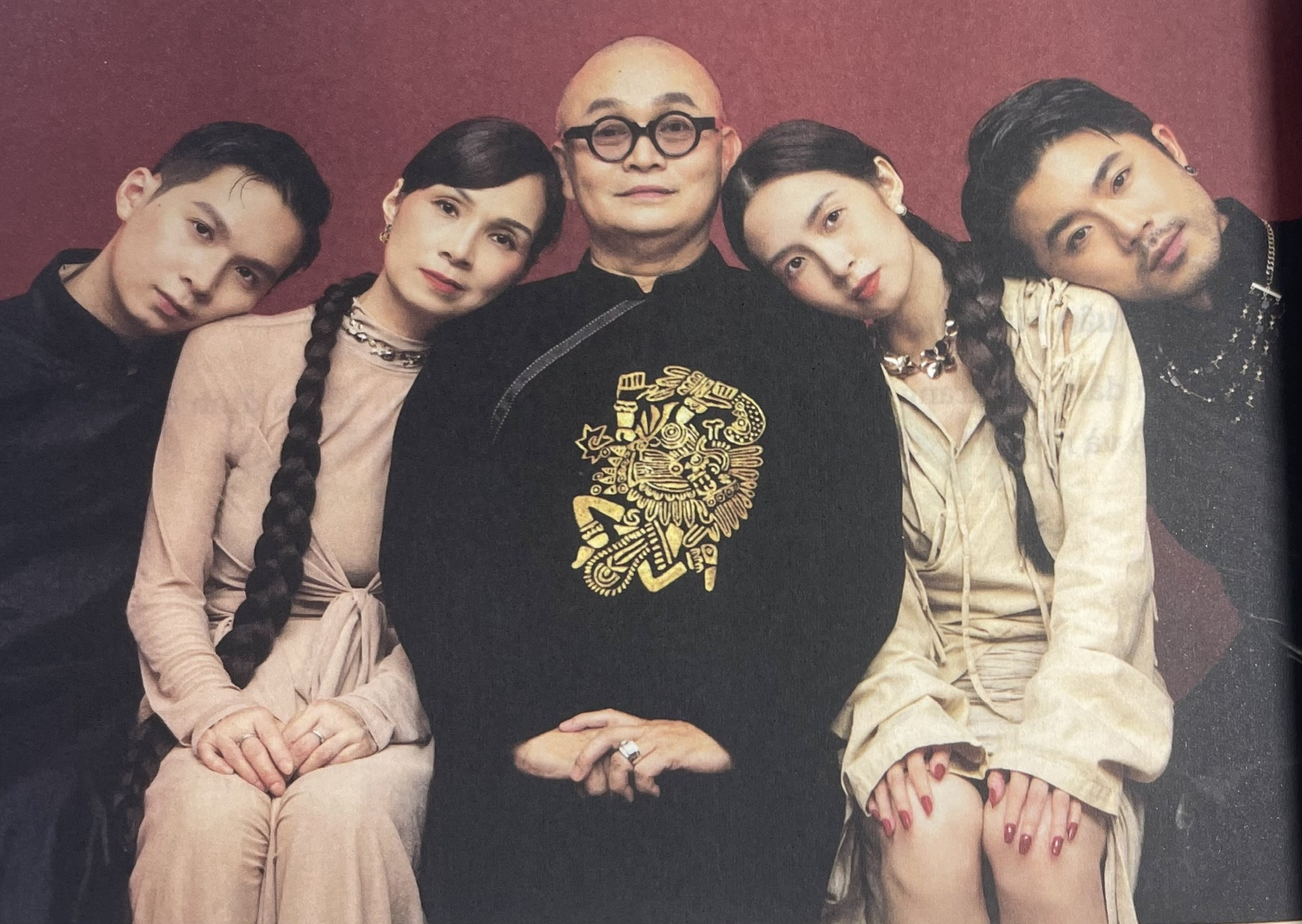The book, released on 23/7, was written by Thanh Thuy and Nhu Hoa based on Xuan Hinh's recollections. He admitted to having previously declined numerous offers to write a memoir, unsure of how to approach it. In mid-2024, he reconsidered another proposal. With a less demanding work schedule, he began to contemplate the idea more seriously. Witnessing the devastation caused by Typhoon Yagi, he realized, "Things we believe are eternal can vanish in the blink of an eye. What truly endures?" This question prompted him to finally agree, not only to share his story but also to celebrate Vietnamese culture and its heritage.
Divided into five sections, with an appendix of works and photos, the memoir offers a comprehensive look at Xuan Hinh, his philosophy, and his career. He has always considered himself "a rustic joker," a phrase he chose as the book's title. The memoir recounts his impoverished childhood and his nearly 50-year career in the arts.
 |
The nearly 300-page book, published by THBooks, is available in hardcover and paperback. Photo: Phuong Linh |
The nearly 300-page book, published by THBooks, is available in hardcover and paperback. Photo: Phuong Linh
Xuan Hinh describes his childhood as "hard but fulfilling." The eldest son in a family of seven children (with an older sister), he witnessed his parents working tirelessly to provide for their family in the 1970s. His father, a teacher, also worked as a market vendor. His mother, "always busy, regardless of the weather," worked in the fields and sold everything from sugarcane and tea leaves to fried cakes and water spinach.
Xuan Hinh began contributing to the family's income at the age of 12. He recalls, "Before sunrise, whether it was freezing winter or scorching summer, I would get up, load my bicycle with produce from the local Nui Market, and ride over ten kilometers to Don Do Market. After selling everything, I'd buy shrimp, crabs, fish, and snails to sell back at Nui Market before it closed."
Born in Yen Viet village, Dong Cuu commune, Bac Ninh province, home to the Thap Dinh festival, Xuan Hinh grew up surrounded by folk games, "cheo" (traditional opera), and "quan ho" (folk singing). These art forms deeply influenced him. Every day at 11:30 am, no matter where he was, he would make his way home to listen to the folk music program on the Voice of Vietnam radio station.
His passion for traditional arts led to a major turning point at 13 when he joined the Ha Bac Quan Ho troupe. While he appreciated the beauty of quan ho, he found its stage presentation somewhat static. He then turned his attention to "cheo" and joined the Ha Bac Cheo troupe.
Throughout his life, Xuan Hinh believed that "art is not about memorization or imitation." To achieve longevity in the field, formal training is essential. In 1983, he enrolled in the Cheo program at the Hanoi University of Theatre and Cinema. "A solid foundation of knowledge is crucial for an artist's perseverance," he says. Despite financial struggles, he invested in private tutoring, believing that "investing in one's career shouldn't be a matter of penny-pinching."
Artist Xuan Hinh in an excerpt from the cheo clown piece "Cu Sut." Video: Xuan Hinh Official
Xuan Hinh considers 1988 his "breakthrough year," marked by his performance as the cheo clown Cu Sut, which brought him both income and recognition. In the 1990s, he encountered a talented but struggling musician playing the "tam thap luc" (a 36-stringed zither). Moved by his situation, Xuan Hinh sought to preserve the musician's music, recognizing the potential of recordings to reach a wider audience. His success in distributing these recordings earned him the nickname "the king of CDs."
After documenting traditional arts, he began incorporating contemporary elements to appeal to younger audiences, as seen in "Tung lo gach" (1995), a social comedy about family planning, and "Chong ruou vo de" (1997), a short film about gambling. He then ventured into organizing performances, achieving considerable success with shows attracting tens of thousands of spectators, never once canceled due to weather.
 |
Artist Xuan Hinh in the skit "Man Horse, Horse Man," with his stage partner Thanh Thanh Hien. Photo: Provided by the artist |
Artist Xuan Hinh in the skit "Man Horse, Horse Man," with his stage partner Thanh Thanh Hien. Photo: Provided by the artist
Despite his fame, Xuan Hinh never became complacent, constantly seeking innovation. Even after 60, he believed that "age is no barrier to creativity" and that "an artist must never stop." 2024 was a year of new ventures, including his first film role in "Mui pho," set to release during the following Tet holiday. In March, he collaborated with singer Hoa Minzy and musician Tuan Cry on the song "Bac Bling."
The memoir also features Xuan Hinh's 5,000 m2 Mother Goddess museum in Soc Son, Hanoi. Feeling grateful for his life experiences, both the hardships and the joys, he wanted to give back to society. This led him to build the museum, a place not only for worship but also for preserving and exhibiting artifacts related to the Mother Goddess belief and Vietnamese folk culture.
In the book's conclusion, Xuan Hinh reflects on his rich and fulfilling life. He expresses gratitude for his wife, his constant support, and pride in his children, each with unique personalities but all well-behaved, loving, and independent. His biggest regret is that his father passed away before seeing his success.
 |
Xuan Hinh's family. From left: son Bui Xuan Quang, wife Nguyen Phuong Lan, daughter Bui Bao Linh, son-in-law Trieu Quang Duc. Photo: Provided by the artist |
Xuan Hinh's family. From left: son Bui Xuan Quang, wife Nguyen Phuong Lan, daughter Bui Bao Linh, son-in-law Trieu Quang Duc. Photo: Provided by the artist
He had been concerned about the future of traditional arts, but in recent years, he's been heartened to see a resurgence in their popularity, particularly through works blending tradition and modernity.
Xuan Hinh was born in 1963 but registered his birth year as 1966 to meet the age requirement for the Hanoi University of Theatre and Cinema. While some sources list his birth year as 1960, he doesn't bother correcting them, believing that "age is just a number." His name is synonymous with cheo, quan ho, "xam" singing (a form of folk music), and "chau van" (spiritual singing). He is best known for works like "Thi Mau Goes to the Pagoda," "The Fortune Teller Goes to the Market," and "Man Horse, Horse Man." He was awarded the title of Meritorious Artist in 1997.
Phuong Linh











